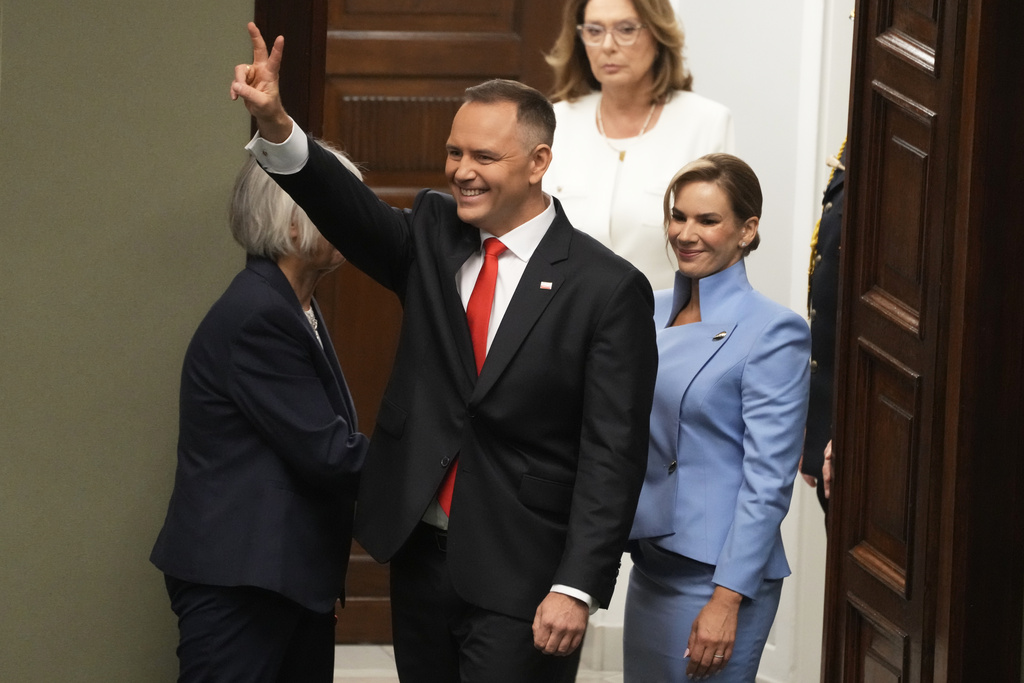Nawrocki Blocks Aid Law, Putting Ukrainians at Risk and Eroding Trust With Kyiv

The political gesture of the Polish president, who vetoed the law on the protection of Ukrainians, risks weakening trust between the two countries in favor of Moscow
The decision of the new Polish President Karol Nawrocki to veto the law on assistance to Ukrainians was unexpected and, at the same time, a symptomatic signal of a shift in the political climate in the relations between the two states.
This is not merely about payments or access to Polish healthcare for Ukrainians under temporary protection, but about a strategic question: can Poland remain a stable partner for Ukraine in wartime, when Moscow is betting precisely on sowing discord among Kyiv’s allies.
Social Assistance Becomes a Hostage of Politics for almost a million Ukrainians
The law vetoed by Nawrocki provided for the extension of temporary protection for Ukrainians until March 2026 and clarified the conditions for receiving child benefits. For nearly 900,000 Ukrainian citizens currently under protection in Poland, this would have been a safeguard against social problems. However, the president decided that these guarantees should only be available to those who work in Poland or run businesses there.
In effect, this deprives a significant portion of Ukrainian families – particularly mothers with children, students, and people with chronic illnesses who are unable to work formally – of the right to assistance. Moreover, the veto also affects the funding of key projects by the Polish side. Such a move is inevitably interpreted as politically motivated rather than a pursuit of the “social justice” that the president claims.
Kyiv’s Concessions Highlight Poland’s Unjustified Veto
Kyiv has consistently demonstrated its readiness to resolve any contentious issues with Warsaw, from agricultural disputes to the status of labor migrants. Ukraine has repeatedly made unpopular domestic decisions to preserve strategic unity with Poland. Therefore, the current veto appears unjustified and raises questions: is this truly about economic arguments, or is it rather a matter of political calculation?
Ukraine has already done its utmost to avoid conflicts: it agreed to mechanisms for controlling agricultural exports, cooperates in the field of migration policy, and takes Polish interests into account in negotiations with the EU. In this context, Warsaw’s refusal to continue assistance is perceived as a step lacking rational explanation, one that only escalates tensions to the benefit of third parties.
Veto Deepens Social Strain and Erodes Bilateral Trust
According to official data, around 1.5 million Ukrainians live in Poland, of whom over 700,000 are legally employed. The president’s decision will directly affect the most vulnerable – those without a Polish employer or who work remotely for Ukrainian companies. This will not only create social tension but also undermine Poland’s image as a country that served as Ukraine’s main rear support in the early years of the war.
Particularly alarming is the attempt to politicize historical issues. Statements about “equating Bandera symbolism with Nazi and communist symbols” appear as pandering to the far-right rather than serious state policy. For Ukrainians, this is not only offensive but also unacceptable, as it is perceived as a revision of the past and a shifting of historical responsibility onto the victim of aggression.
From Strategic Ally to Nationalist Politics: Warsaw’s Changing Course
Analysts in Warsaw are already noting that President Nawrocki is deliberately moving away from the policy of his predecessor, Andrzej Duda, who built a partnership with Ukraine based on security and strategic trust. The new course is oriented toward a nationalist electorate that increasingly demands distancing from Ukraine. This aligns with the growing influence of the far-right “Confederation” and other political forces that exploit the topic of Ukrainian migrants as a threat to Poland’s social system.
Such rhetoric may yield short-term domestic dividends, but strategically, it weakens both Warsaw and Kyiv. After all, Poland is losing its role as Ukraine’s advocate in the European Union, instead becoming a factor of unpredictability.
Moscow Benefits as Polish-Ukrainian Unity Weakens
President Nawrocki’s decision is not about social justice but about sending a political signal. It strikes not only at Ukrainians in Poland but also at the very idea of Polish-Ukrainian solidarity. Kyiv has fulfilled all possible conditions to maintain the partnership, which is why the veto appears artificial.
The consequences are clear: a weakening of Warsaw’s position in the EU, an undermining of Kyiv’s trust in Polish policy, and the creation of a vacuum that Moscow will seek to exploit. For the Kremlin, every crack in the relationship between Ukraine and Poland is an opportunity to advance its own strategy. Thus, the issue is not only about payments or social guarantees but about the ability of Polish policy to resist manipulation and act in the strategic interests of both states.
Bohdan Popov, Head of Digital at the United Ukraine Think Tank, communications specialist and public figure